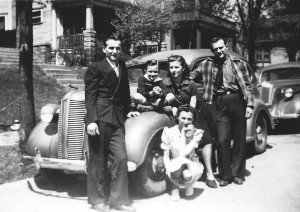A few years ago after we purchased new carpet, the seller mentioned, “When you vacuum your carpet every day . . .”
I laughed.
“You don’t vacuum each day?” She said with a voice that implied I regularly tortured babies and small animals.
“No!” My intonation indicated she was crazier than I.
“It’s not good for your carpet,” she said, nearly shaking her finger at me. “It won’t last very long.”
Since our old, worn carpeting was installed into our house for decades, I wasn’t about to tell her it had survived well without any obsessive cleaning.
In our busy lives it’s hard to discipline ourselves to begin a routine. But if you feel deep in your soul it should be a priority, make it one. Turn off your gadgets and devote twenty minutes a day for your creativity to develop and flow.
Tips:
1. Train your family or roommates by posting a sign on your door. Mine says Writer at Work. Don’t disturb means don’t disturb. No room to call your own? A friend set up a small desk inside a closet in which to work. She wrote several books this way, early in the morning before her kids were up and she went to work as a teacher.
2. Play instrumental or movie music (without words) to inspire your writing or art. Amy Tan plays the same music every day for the book she is working on. It trains your brain to get into the relaxed state to create.
3. While walking, exercising, showering, washing the dishes, wonder about your story, poem, or painting. Solutions and inspiration comes in the wondering state more than facing an empty computer screen or blank piece of paper.
4. Motivate yourself with a star on each day you’ve made your writing goal or
5. Motivate yourself by finding a writing friend to join you. You can chat online or in person once a week about your goals and projects.
As author Jane Yolen commands, “Butt in chair!” It’s the way to get your writing done. You’ll feel great once you’ve built this creative routine!







